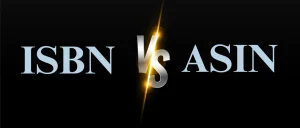In the age of information overload, where countless books flood the market every day, the importance of a well-written book review cannot be overstated. Book reviews play a crucial role for authors, readers, and publishers. Authors benefit from reviews by receiving feedback and validation, which boosts their confidence and credibility while aiding in marketing efforts. Readers rely on reviews to make informed decisions, discover new books, and engage in community discussions. Publishers use reviews to gather market feedback,promote books, and support authors. Overall, book reviews serve as a bridge connecting writers, readers, and the publishing industry, shaping the literary landscape. They act as gatekeepers, helping readers navigate the vast sea of available titles to discover gems that resonate with their interests. Additionally, they provide valuable feedback to authors, offering insights into their work’s strengths and weaknesses. In this blog post, we’ll explore the art of crafting a compelling book review, delving into best practices that can elevate your critique from ordinary to extraordinary.
Understanding the Purpose of a Book Review
A book review serves as a critical evaluation of a literary work, assessing its subject matter, effectiveness, and cultural value, thus informing both publishers and the public about current literary trends. Found in various publications, these reviews serve as guiding lights for readers in selecting their next literary journey. However, they should transcend mere summarization, aiming instead to analyze the book’s content, style, and overall significance. Reviewers are tasked with demonstrating competence and a deep understanding of the material, presenting well-supported opinions. Their objectives encompass addressing the book’s thematic content and stylistic elements and assessing its broader truth and significance. Effective reviews demand meticulous reading, thoughtful consideration of reader interests, the reviewer’s intentions, contemporary issues, and any prescribed length requirements. Before embarking on the journey of writing a stellar book review, it’s paramount to comprehend its multifaceted purpose. Firstly, book reviews serve to enlighten potential readers by offering insights into a book’s content, style, and quality, aiding in their decision-making process. Secondly, they provide invaluable feedback to authors, helping them identify strengths and weaknesses to refine their craft. Furthermore, book reviews foster literary discourse, contributing to ongoing conversations about literature and ideas. With this foundational understanding, let’s explore some best practices for crafting reviews that captivate and enrich readers’ experiences.
Choosing the Right Book to Review
When it comes to choosing the right book to review, two key considerations should guide your decision-making process. Firstly, select a book that intrigues or aligns with your interests and expertise. By choosing a book that resonates with you personally, your passion for the subject matter will shine through in your review, making it more engaging and authentic. Secondly, consider your target audience. Are you writing for academics, casual readers, or a niche community? Tailor your choice accordingly to ensure that your review is relevant and resonant with the intended readership. By keeping your audience in mind, you can effectively tailor your review to meet their needs and expectations, ultimately enhancing its impact and effectiveness.
Dreaming of Writing a Best-Selling Novel? Let's Make It Happen!
Analyzing the Book: Reading with a Critical Eye
Analyzing the book requires reading with a critical eye, employing two key strategies to deepen your understanding of the text. Firstly, adopt an active reading approach. Rather than passively consuming the content, engage with the text actively. Take notes, highlight significant passages, and jot down your initial impressions as you progress through the book. This interactive approach fosters a deeper connection with the material and enables you to capture key insights and observations. Secondly, strive to understand the author’s intent. Consider the author’s overarching purpose, themes, and stylistic choices. What message is the author attempting to convey, and how effectively do they communicate their ideas? By delving into the author’s intentions, you can gain valuable insights into the underlying themes and motifs driving the narrative, enriching your analysis and interpretation of the book.
Crafting Your Review: Structure and Content
Start your review with a succinct introduction, encapsulating vital details such as the book’s title, author, genre, and pertinent background information. Then, delve into a comprehensive analysis, exploring the book’s strengths, weaknesses, and overall impact by examining themes, characters, plot developments, and writing style supported by textual evidence. Offer a balanced critical evaluation, acknowledging both merits and shortcomings with fairness and integrity. Stimulate reader engagement by posing thought-provoking questions and fostering dialogue in the comments section. Conclude with a concise summary that restates key points and offers final reflections, ensuring to avoid spoilers while aiding readers in gauging the book’s alignment with their interests. Bellevue Publishers, with its team of experienced writers and editors, can assist in refining the structure and content of your review. Our writers offer expert guidance to ensure your review captures the essence of your insights while maintaining clarity, coherence, and engagement. With Bellevue Publishers’ support, you can publish a compelling review that resonates with readers and showcases your expertise in literary critique.
Writing Style and Tone
When crafting your review, prioritize clarity and precision to ensure accessibility to a broad audience, steering clear of complex language that may hinder comprehension. Articulate your arguments clearly, substantiating them with relevant examples from the text. Cultivate a distinctive voice and tone that resonate with your personality and viewpoint, maintaining authenticity and consistency, whether adopting a formal, academic approach or a more casual, conversational style. Approach the review with empathy and respect towards the author and their work, focusing critiques on the book rather than the individual and refraining from personal attacks or derogatory language, even in instances of disagreement.
Editing and Revision
As you prepare to publish your review, dedicate ample time to the crucial steps of editing and revision. Thoroughly review your critique to ensure clarity, coherence, and accuracy, addressing any grammatical, spelling, or punctuation errors that may detract from its impact. Pay attention to the overall flow and readability of your writing, refining the structure and organization to present your ideas cohesively. Seeking feedback from peers or fellow reviewers can provide valuable insights and perspectives, allowing you to identify blind spots and areas for improvement. At Bellevue Publishers, our editorial team offersprofessional editing services to assist you in refining your review to its highest potential. Our experienced editors provide meticulous attention to detail, ensuring that your critique is polished and engaging. With our support, you can confidently publish a review that captures the essence of your insights while maintaining the highest standards of quality and professionalism.
Publishing and Promotion
When it comes to publishing and promoting your book review, there are several key steps to consider, along with how Bellvue Publishers can assist in this process. Firstly, selecting the right platform is crucial. Whether you choose to publish on a personal blog, social media platform, or literary magazine, it’s essential to align your choice with your goals and target audience. Bellvue Publishers can offer guidance in selecting the most suitable platform based on their expertise in the publishing industry, ensuring that your review reaches the widest possible audience. Once your review is published, promotion is key to maximizing its impact. To increase visibility, share your review across relevant channels such as social media, book forums, and online communities. Bellevue Publishers can leverage their extensive network and marketing resources to help amplify your review’s reach, connecting you with potential readers who are interested in the book’s subject matter.
Conclusion: The Art of Influence Through Insightful Critique
In conclusion, crafting a well-written book review is a multifaceted process that requires careful consideration and attention to detail. Throughout this blog post, we’ve explored the significance of book reviews in today’s information-rich landscape, highlighting their importance for authors, readers, and publishers alike. Book reviews serve as invaluable tools for authors, providing feedback and validation while aiding in marketing efforts. For readers, reviews offer insights, guidance, and opportunities for community engagement. Publishers leverage reviews to gather market feedback, promote books, and support authors, shaping the literary landscape in the process. Reviewers can create critiques that inform, engage, and inspire by understanding the purpose of book reviews and following best practices for writing them. From choosing the right book to analyze, to crafting a compelling review with clear structure and content, to refining writing style and tone, to editing and revision, every step plays a crucial role in producing a review that resonates with readers. With the support of Bellevue Publishers, writers can navigate the publishing and promotion process with confidence, reaching a broader audience and making a lasting impact with their reviews. By embracing the art of crafting thoughtful and insightful book reviews, reviewers contribute to the rich tapestry of literary discourse, fostering a deeper appreciation and understanding of the written word.
Ready to Write Your Best-Selling Masterpiece?
Related Posts

The Simplest Way to Get an ISBN Number as a Self-Published Author
As a self-publishing author, it is important that you know how to get an ISBN number. You can get your own ISBN barcode for your book by purchasing it from

Top 10 Best Book Publishing Companies in 2024
It is a desire of every writer to be published someday. It is natural to want this recognition after spending many months, even years, for some people, writing a book.

Best Book Formatting Software and Tools for Paperbacks
Writing your book and finishing that final draft is therapeutic. But getting it published is a headache for most writers.When you self-publish, it is usual for writers to keep in

ISBN vs ASIN: Which One to Choose
You’ve finished writing and editing your dream book. Now what? It is time for you to hit that exciting publish button and share your story with the world. But it

Top 10 Best Book Publishing Companies
Introductionwrite a book It is a desire of every writer to be published someday. It is natural to want this recognition after spending many months, even years, for some people,

Best Practices For Writing Book Reviews
In the age of information overload, where countless books flood the market every day, the importance of a well-written book review cannot be overstated. Book reviews play a crucial role

